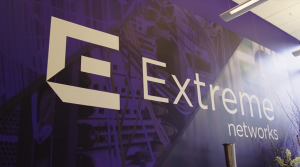Oracle Exalogic: Optimization instead of Virtualization
Oracle announced their latest integrated stack, Oracle Exalogic Elastic Cloud at Oracle Open World this week in San Francisco. Exalogic is compute and memory optimized for workloads such as Oracle database. Oracle’s pitch is that Exalogic is “hardware and software engineered to work together.” When you deconstruct the solution, it is Sun servers and Sun storage tied together with InfiniBand. Oracle may be the king of databases, but their ecosystem today is made up of all of the infrastructure partners which they now find themselves competing with. Fujitsu, Dell, HP and even EMC and Cisco (and the Acadia/VCE Vblock) have a ![]() significant presence at Oracle Open World and are well entrenched in the customer base. There is no doubt that Oracle has done a lot of hard work to create a powerful and fast solution, but Sun had been down this path prior to the acquisition by Oracle and had limited success in the marketplace. Flash SSD technology now plays a more important role in the design, allowing for faster response times. At over one million ($1M) for the solution, it’s basically a “mainframe” built with Sun pieces that is optimized for Oracle’s database and middleware solutions. While Oracle application heads might like the pitch of a full Oracle solution, customer networking, storage and network teams are all likely to be roadblocks of this infrastructure. John McArthur sums it up: “Oracle’s Exalogic requires top-down selling approach to break down budgetary, organizational, security, & compliance walls.”
significant presence at Oracle Open World and are well entrenched in the customer base. There is no doubt that Oracle has done a lot of hard work to create a powerful and fast solution, but Sun had been down this path prior to the acquisition by Oracle and had limited success in the marketplace. Flash SSD technology now plays a more important role in the design, allowing for faster response times. At over one million ($1M) for the solution, it’s basically a “mainframe” built with Sun pieces that is optimized for Oracle’s database and middleware solutions. While Oracle application heads might like the pitch of a full Oracle solution, customer networking, storage and network teams are all likely to be roadblocks of this infrastructure. John McArthur sums it up: “Oracle’s Exalogic requires top-down selling approach to break down budgetary, organizational, security, & compliance walls.”
By comparison, Vblock (from Acadia/VCE) creates a “virtualized infrastructure” with compute, network and storage that can fit a lot of places. Made of Cisco servers, Cisco networking (#1 in marketshare) and EMC storage (#1 in marketshare), the solution is much more mainstream (such as using Ethernet rather than Infiniband) than the Oracle solution. Vblock has fewer knobs to fiddle with than a traditional configuration, but still provides enough flexibility in the configuration to meet a broad cross-section of solutions in the marketplace. See a VCE paper on Oracle (and SAP – see video below of Levi Strauss CIO Tom Peck discussing his SAP solution on Vblock – and SQL) solutions and the reference architecture that includes details on the FC, FCoE, iSCSI and NAS options. Management and secu![]() rity are the top concerns of CIOs looking at virtualization – Vblock has a single point of management for the entire solution and security throughout the entire solution (Cisco and RSA). Oracle’s security story is focused on database encryption. Vblock also runs with VMware, which not only is the market leader in virtualization, but provides a broad support for most operating system environments – Oracle VM only supports Linux and Solaris. At VMworld, I spoke to a number of service providers who are using Vblock – allowing for faster deployment, simplified management and flexible scaling and mobility. The VCE initiative and the rapidly growing vSpecialist team work deliver their message of next generation infrastructure to the executives down to the data center managers.
rity are the top concerns of CIOs looking at virtualization – Vblock has a single point of management for the entire solution and security throughout the entire solution (Cisco and RSA). Oracle’s security story is focused on database encryption. Vblock also runs with VMware, which not only is the market leader in virtualization, but provides a broad support for most operating system environments – Oracle VM only supports Linux and Solaris. At VMworld, I spoke to a number of service providers who are using Vblock – allowing for faster deployment, simplified management and flexible scaling and mobility. The VCE initiative and the rapidly growing vSpecialist team work deliver their message of next generation infrastructure to the executives down to the data center managers.
The top line messaging is very different between these two solutions – Oracle is laser focused on the optimization of their applications, while VCE is creating a fully virtualized environment which helps IT transition to a cloud or cloud-like model. Oracle has long had heartburn about VMware; Exalogic is another move by Oracle to fight against VMware’s increasing importance in the marketplace. The original “four horsemen of the internet era” – Sun, Oracle, Cisco and EMC – have changed a lot in the last decade and now they battle for dominance in the cloud-era, facing ever growing competition from IBM, HP, Google and Amazon.
A message from John Furrier, co-founder of SiliconANGLE:
Your vote of support is important to us and it helps us keep the content FREE.
One click below supports our mission to provide free, deep, and relevant content.
Join our community on YouTube
Join the community that includes more than 15,000 #CubeAlumni experts, including Amazon.com CEO Andy Jassy, Dell Technologies founder and CEO Michael Dell, Intel CEO Pat Gelsinger, and many more luminaries and experts.
THANK YOU









